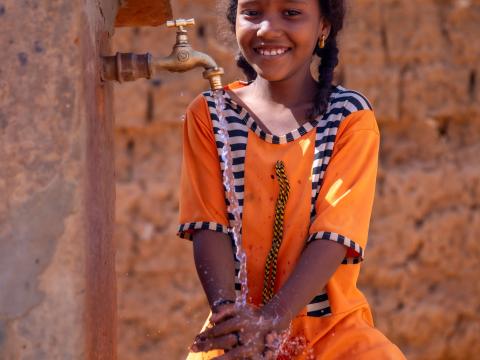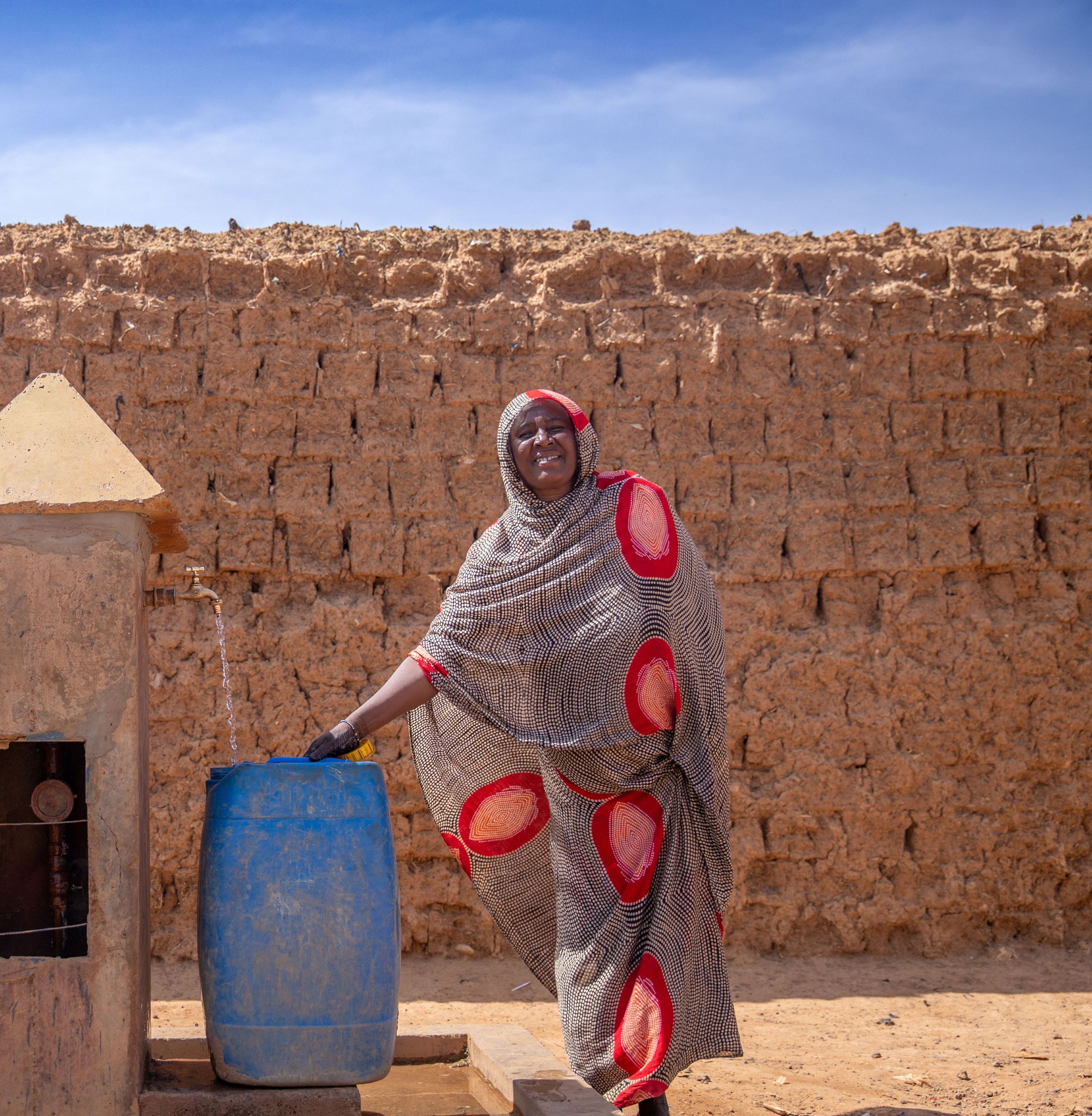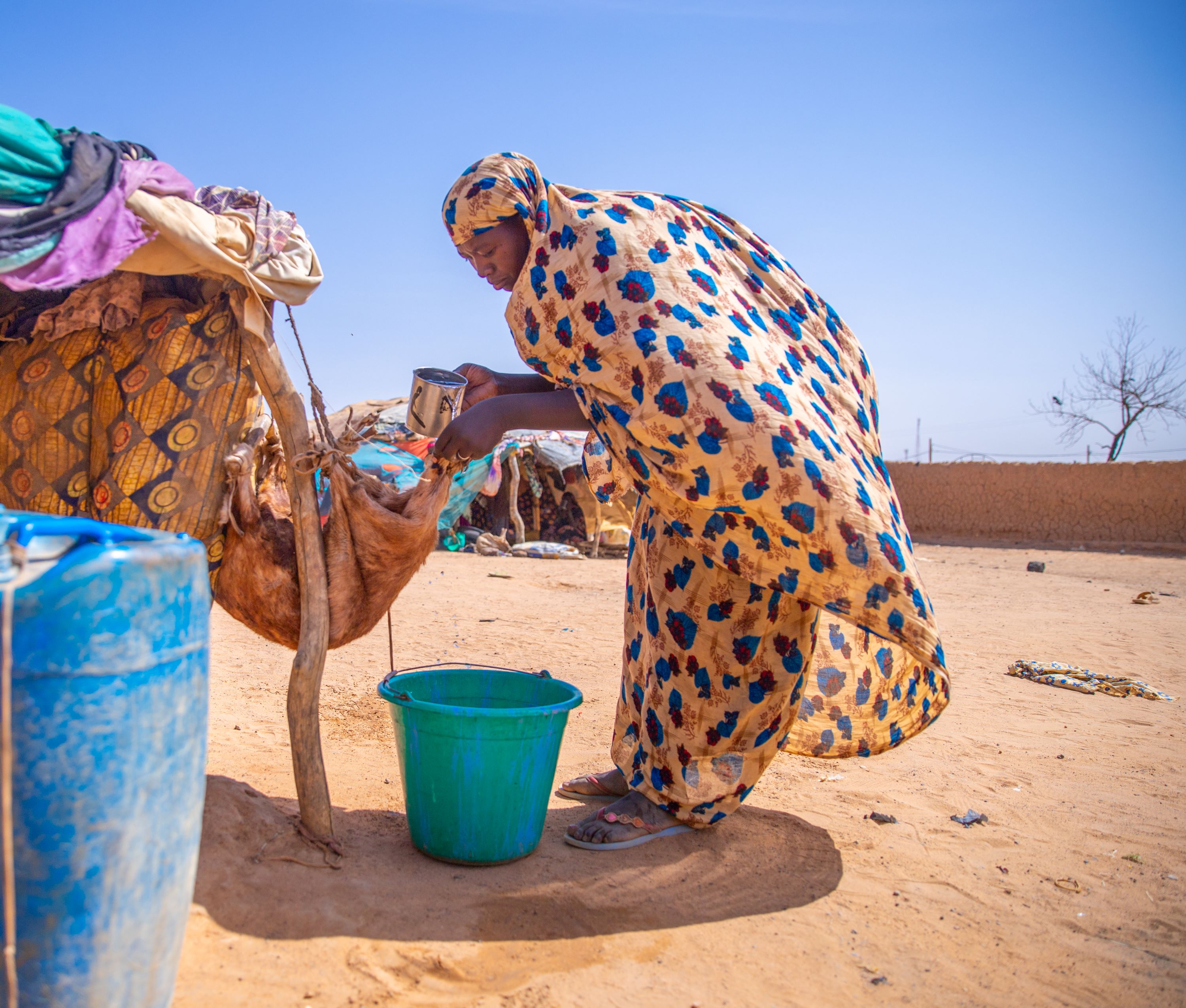In Ménaka, Water Restores Hope

In northeastern Mali, daily life is deeply marked by persistent insecurity and forced population displacement. In this particularly difficult context, access to drinking water remains a daily challenge.
In 2024, World Vision drilled two boreholes equipped with standpipes in the town of Ménaka, providing more than 20,000 people with daily access to drinking water.
Kadidiatou, 41, a mother of 6 children, resident of Ménaka, still remembers the difficult days when she would walk several kilometers under the scorching sun to bring water to her family.
"Before, everything was complicated. We would walk for long periods with heavy containers on our heads, never able to bring back enough water. Most often, we had to choose: wash the children or prepare food."
 The children would go several days without a bath and regularly fell ill. Furthermore, the lack of water has forced
The children would go several days without a bath and regularly fell ill. Furthermore, the lack of water has forced
women to abandon their favorite activity, market gardening, in favor of other activities to provide for their families.
Alimatou, a 36-year-old internally displaced person from Andéraboukane, located about 95 kilometers from Ménaka, testifies to the particular difficulties faced by internally displaced persons:
"When we fled Andéraboukane, we left everything behind. When we arrived here, we had to pay for drinking water. A barrel of water cost 1,000 CFA francs; buying it was a luxury we couldn't afford. We didn't even have enough water to cook or wash our clothes."
Today, thanks to the installation of a borehole by World Vision in the first neighborhood, this sad reality has completely changed.
"Now, with this castle, we have abundant drinking water just a few steps from our home, no more long daily walks for water," explains Alimatou, greatly relieved.
Kadidiatou shares this relief, describing with a smile the tangible improvements in her family's habits:
"Thanks to this borehole, my children are finally clean and healthy. We can now wash our clothes, cook peacefully, and I've even planted a small garden in the yard where fresh vegetables like tomatoes, onions, and lettuce now grow."
In a region as fragile as Ménaka, easier access to drinking water goes beyond simply meeting a basic need.
It is, above all, a source of dignity, security, and hope, both for local communities and for internally displaced families.
